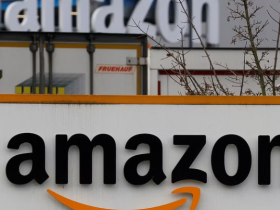In the competitive landscape of today’s business world, packaging is more than just a means to protect products during transportation. It has evolved into a powerful tool for brand differentiation, customer engagement, and environmental responsibility. Tailored packaging, a concept gaining traction across industries, is revolutionizing the way companies present and deliver their products. This article explores the significance of tailored packaging in enhancing brand identity and contributing to sustainability efforts.
The Rise of Tailored Packaging:
Tailored packaging involves the customization of packaging materials and designs to align with the unique characteristics and branding strategies of a particular product or company. This shift from generic packaging to personalized solutions is driven by the desire to stand out in a crowded marketplace, foster brand loyalty, and address the growing consumer demand for sustainability.
Enhancing Brand Identity:
Distinctive Branding:
Tailored packaging allows companies to create a distinct and memorable brand image. Customizing packaging materials, colors, and graphics enables businesses to communicate their unique identity and values. This personalized touch helps in building a stronger connection with consumers, fostering brand recognition and recall.
Product Presentation:
The way a product is presented significantly influences consumer perceptions. Tailored packaging allows companies to carefully curate the entire unboxing experience, ensuring that it aligns seamlessly with the brand message. This attention to detail enhances the perceived value of the product and contributes to a positive customer experience.
Targeted Audience Appeal:
Different demographics respond to varying visual and design elements. Tailored packaging enables companies to tailor their packaging to specific target audiences, ensuring that the packaging resonates with the preferences and tastes of the intended consumers. This targeted approach enhances the overall effectiveness of marketing strategies.
Contributing to Sustainability:
Reducing Environmental Impact:
Tailored packaging can go hand-in-hand with sustainable practices. Companies can choose eco-friendly materials, incorporate recyclable or biodegradable options, and optimize packaging sizes to minimize waste. This move towards sustainability aligns with consumer values and helps companies reduce their environmental footprint.
Optimizing Packaging Efficiency:
Tailored packaging isn’t just about aesthetics; it’s also about functionality. Companies can optimize packaging designs to reduce excess material usage, leading to more efficient transportation and storage. This not only contributes to sustainability efforts but can also result in cost savings for businesses.
Educating Consumers:
Customized packaging provides an opportunity for companies to educate consumers about their commitment to sustainability. Including information about eco-friendly practices, recycling instructions, or certifications on the packaging can raise awareness and foster a sense of responsibility among consumers.
Conclusion:
Tailored packaging is not merely a trend; it is a strategic approach that enhances brand identity, promotes customer engagement, and contributes to sustainable business practices. As companies continue to recognize the importance of creating a unique and eco-conscious packaging experience, tailored packaging solutions will likely play a pivotal role in shaping the future of product presentation and consumer engagement in the business world.










Leave a Reply